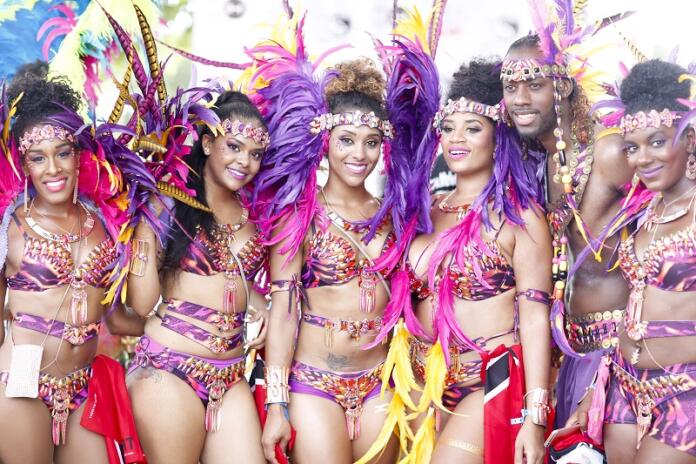
Last year, restaurateur Donovan Smith was at the gates to the Miami-Dade County Youth Fair Grounds just as he is every October.
Miami Carnival had gone virtual for the first time in response to the pandemic, but Smith, who owns Kingston Delight, still showed up and made prank calls to Carnival leaders. In a normal year, they would have come down to the gates to escort him in so that he could set up his food booths, but in a year without carnival, instead there was radio silence.
“It’s 6 o’clock in the morning and there is no one here,’” Smith remembered telling CEO Mario Zamora and others over the phone, pretending like he did not know the festival had been canceled.
The joke became popular chatter in the chat rooms and social media of the carnival circuit, said Miami Carnival Spokesperson Yvette Harris. Though everyone had a good laugh, Smith’s calls underscored what was missing from the virtual carnival produced last year: the soul of the event, including the hassles.
“Last year, going virtual was nothing compared to the real thing,” said Smith, who has been involved with Carnival in South Florida for 16 of its 37 years.
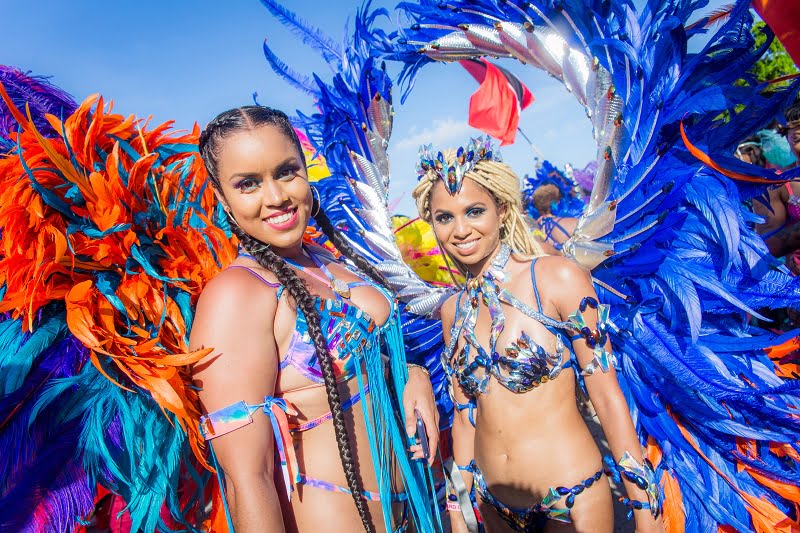
“At carnival, you feel the adrenaline, the hype, the dancing, the costumes,” Smith shared, getting excited over the phone. “Carnival is Carnival, the excitement, the atmosphere, the sunshine, the big trucks. Carnival represents the world. To see the vendors, to see all the food from the different islands; it’s a feeling – the feeling, the rush that gives you the excitement.”
Hard to encapsulate all that through a live stream. Still, vendors such as Smith, longtime revelers, and sponsors thought the virtual carnival projected Caribbean culture and Miami’s flavor. The safety of the patrons and participants was paramount. No one downplayed that even as they longed for a more traditional celebration.
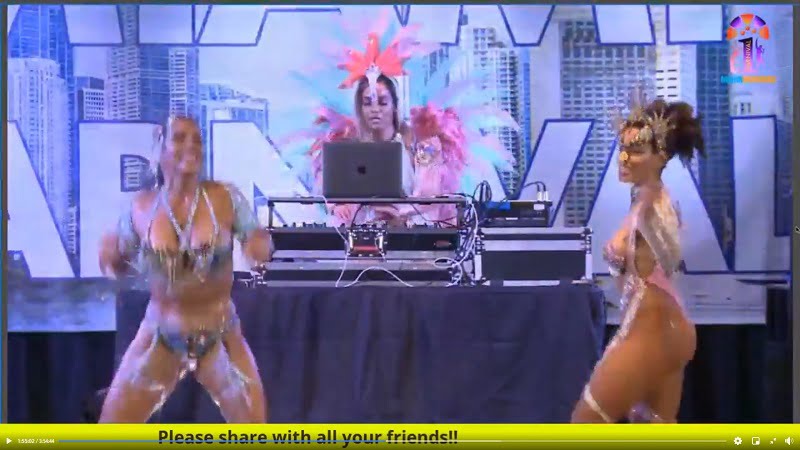
Turned The Whole World Upside Down
The cancelations piled up as COVID-19 continued its grip on the globe. Widely seen as the best and biggest in the Caribbean, Trinidad and Tobago Carnival held in late February or early March just before Ash Wednesday usually brings more than 30,000 visitors to the island to fete and let loose. But on Sept. 28, 2020 the government of Trinidad and Tobago pulled the plug and informed its community that they would be suffering through a year without carnival as well.
“Of course, it was a gut-punch reaction for me as any true carnival reveler would be disappointed in this news,” said Vanessa James, who lives in South Florida, was born in Trinidad, and has researched and written about Carnival in addition to attending as an avid fan.
“There’s nothing quite like a Trini carnival,” she said. “But safety comes first and I appreciate the Trinidadian government taking this pandemic seriously and protecting their citizens. We have to always remember that, for the people of Trinidad and Tobago, the carnival tradition is more than an annual celebration but a way of life.”
Once again, the pressure is on for Miami Carnival, which typically closes out the international carnival season with festivities every October. Planners acknowledge Carnival Miami 2021 could be virtual again, although details depend on the success of COVID-19 vaccination efforts this spring and summer.
This time, committee members have some experience taking a street festival into a virtual space. Asa Sealy was proud of last year’s program for showcasing the culture of Carnival as well as the destination of Miami.
“I tried my best last year. I proposed a different way to promote carnival and the amazing city that hosts it,” said Sealy. “I put to bed that Miami carnival is not trying to be New York, and this is not Trinidad; there is no other city in the world like this. Miami has the perfect recipe for this cultural celebration: the weather, the diversity, and the ability to touch all the different islands in one place.”
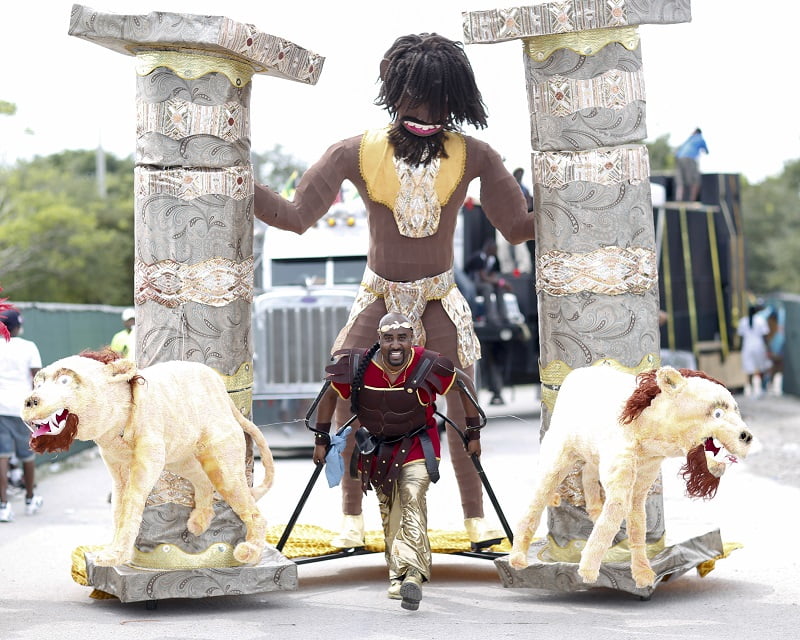
The details of this year’s bacchanal are still being worked out. For now, the host committee hopes to have a mix of virtual and in-person festivities for Miami Carnival, Oct. 8-10, 2021, either way 2021 will not be a year without carnival.
Whether they be allowed to use the same venue is still a toss-up. As of March, the fairgrounds and a desired alternate location, the Broward County Stadium, have been commandeered as COVID-19 testing sites. Yet, that challenge also offers a ray of hope: By early March, government officials had reported that 57% of Florida’s seniors had been vaccinated with hopes to open doses up to other Floridians soon.
Organizers still don’t have answers to some key questions. Who will be able to travel and choose to attend? Will top artists and costume designers, who mostly come from Trinidad, be allowed to cross the border? Or, given the opportunity, will revelers feel safe enough to don a costume and go on “de road?”
Border closures and state COVID-19 rules could affect attendance dramatically, particularly given that many Miami revelers are visitors. In 2019, 11% were international travelers and 37% had arrived from outside Florida, with the biggest contingents coming from New York, Maryland and Georgia, according to a survey by the Greater Miami Convention and Visitors Bureau. Although some stayed with family, a whopping 65% of those surveyed stayed in Miami’s hotels or motels.
Ready For Di Road
Sealy said everyone is ready to deliver the best possible carnival in 2021, whatever form it ultimately takes. The visitors bureau has said it will continue its support even if the hybrid event does have to go fully virtual. By May, the host committee hopes to know what Carnival Miami will look like and where it will be held.
Meanwhile, carnival vendors are finding ways to cope as one year without carnival looks like it might stretch into two.
“We have to keep the culture going, so whatever it takes,” said Kathy Ann Paul, owner of Sweet Hand Kathy Restaurant and Bakery who is hoping the previous year without carnival does not impact the community’s cultural pride.
James, who is ready to hit a Caribbean carnival in 2022, thinks the biggest lesson for so many, coming out of this pandemic, is understanding what carnival means to the people of the Caribbean and the diaspora as a whole.
“More than an annual tradition, it’s a way of life, culture and people that are deeply rooted in tradition, resistance and freedom,” she said. “Ever since I could remember, my family would gather for carnival celebrations to watch calypso and soca artists perform over a freshly cut coconut water with a side of Scotch. I have endless memories of gatherings listening to panorama or finely tuning costumes before carnival Monday and Tuesday.
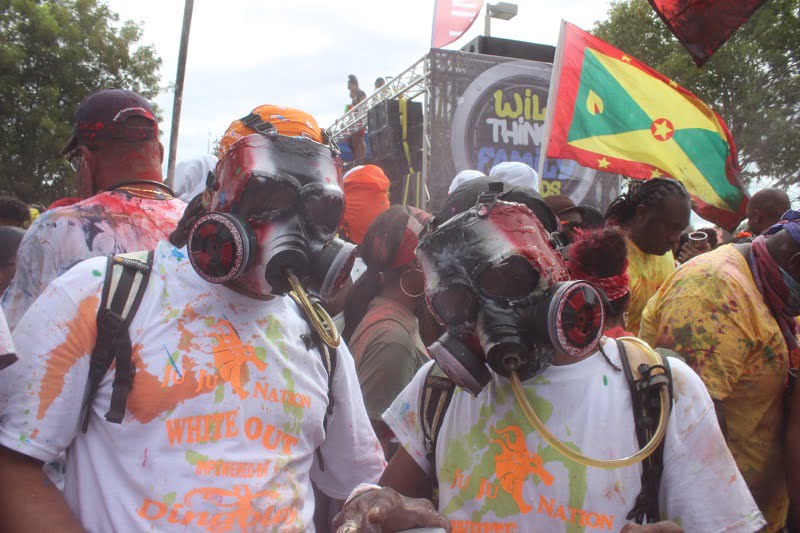
“My favorite carnival celebration has always been J’ouvert Morning,” James said, reminiscing. “Where we gather before the crack of dawn to cover our bodies in paint, mud, cocoa or powder, much like our ancestors, (before) chipping down the road to drums and soca.”
Paul agreed there’s nothing quite like the traditional event even though she thought the virtual Miami Carnival was “fantastic.” She can’t wait to create special foods like pigeon peas cook-up with chicken. “From the beginning” of South Florida’s carnivals, Paul’s booths have sold doubles, bake and shark, corn soup, and crab and dumplings.
Most of her business before COVID-19 was catering for carnival-related masquerade bands. Now, there are no bands.
“When there is no carnival, there is nothing,” Paul said, commenting on the effects of a year without carnival.
Smith’s business, too, had to undergo change for a year without carnival. His last large catering event was for Super Bowl 2020 in Miami, just before pandemic lockdowns started in the United States. While he waits for the carnival business to rebound from COVID-19, Smith has found an unexpected line of business for his venue in North Miami Beach – catering requests for repasts and funerals.
“It was a surprise,” Smith said. “But they started coming for that.… People are dying.”
His employees often ask him about the fate of carnival and other Caribbean festivals such as Best of the Best and Jamaican Jerk Festival. Everyone is excited for a possible hybrid carnival this year, with some in-person components.
“I am ready,” Smith said. “My trucks are ready; my workers are ready.”
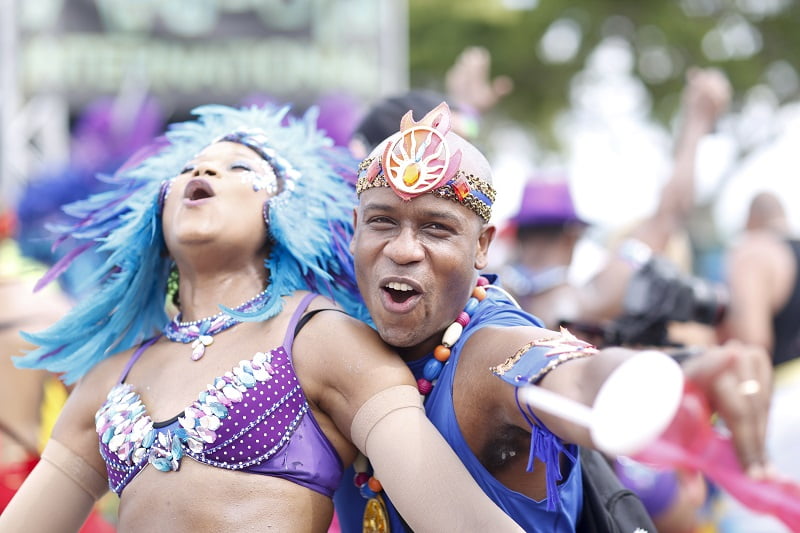
Paul, too, is preparing for a partial return of festivities — and not just as a vendor. She formed a 15-player steel-pan band called United Steel Orchestra, which practices at her restaurant near Miami Gardens on Tuesday, Wednesday and Friday nights. The players, cooks and bakers are antsy at the starting line, waiting for someone to say, “Go,” she said.
Yolanda Henry, who organizes the Miss Miami Broward Carnival Pageant just before carnival each year, wonders how revelers will create their costumes this year. Most of the notions, fabrics and materials to make them are usually shipped from China to New York. With the lockdowns, she worries there may be challenges finding adequate supplies, as there were last year without carnival.
“West Indians are very creative,” Henry said optimistically. “And the U.S. has local seamstresses and some good swimsuit designers. They will come up with something.”
If Miami Carnival allows people to gather this fall, Henry believes people will be there. And if attendees have to wear masks, she has no doubt they will be beautifully made.
“They will come in masks covered in feathers and stones,” she said. “I can see it already.”






























